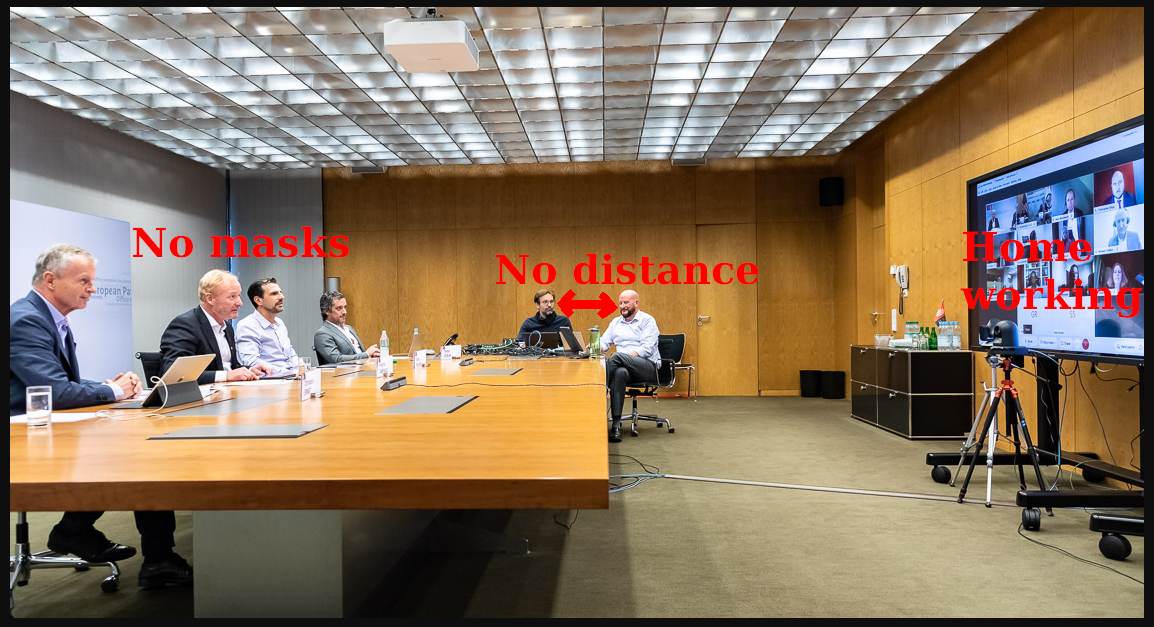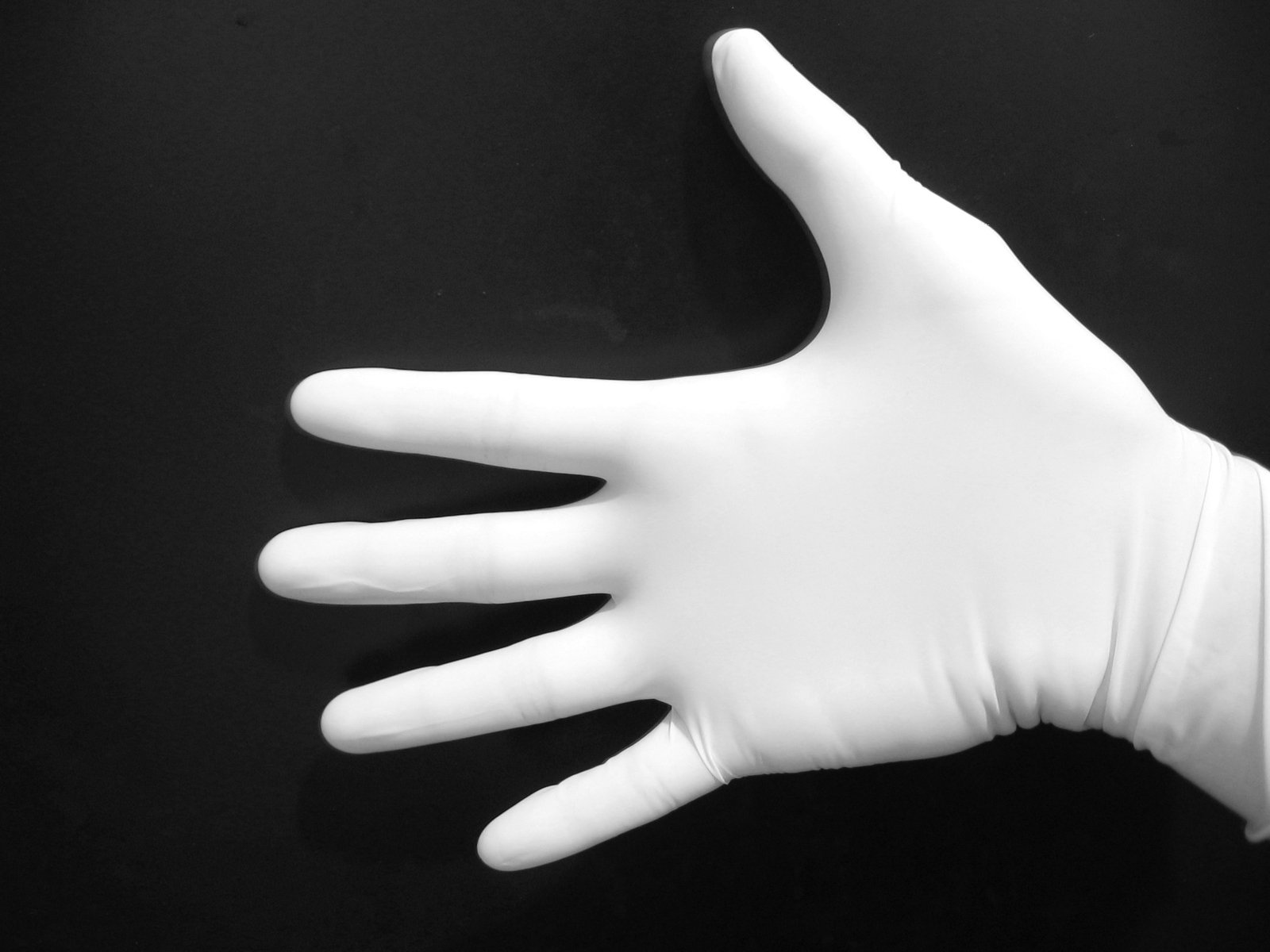

YESTERDAY was the deadliest day (as yet) in terms of COVID-19-linked casualties (11,710 deaths, many in Europe, and over 60,000,000 cases in total as of now).
"Good vaccination regimes take 5-15 years to develop and properly test."When one looks back at the whole thing, the "Second Wave" seems to be a lot more deadly than the first; in spite of precautions and taking into account the scarcity of testing at the start of this year. Did EPO management respond to the crisis like a bunch of scientists or self-serving politicians in pursuit of nothing but money?
 Looking at early publications (pre-lock-down) from the Central Staff Committee, we see the CDC cited; the actual scientists at the Office (i.e. not Benoît Battistelli, António Campinos and their buddies/family members) warned repeatedly.
Looking at early publications (pre-lock-down) from the Central Staff Committee, we see the CDC cited; the actual scientists at the Office (i.e. not Benoît Battistelli, António Campinos and their buddies/family members) warned repeatedly.
To share/reproduce here a letter from March (when much of this began and before the lock-down in the UK):
Reference: sc20046cl-0.3.1/4.3 Date: 19.03.2020
Mr António Campinos President of the EPO
Mr Stephen Rowan VP1 Office
OPEN LETTER
No “business as usual” at times of a pandemic
Dear Mr President, dear VP1
COVID-19 has triggered conditions unprecedented at that scale in the professional and social environments world-wide. Governments are prescribing drastic measures which are accepted as appropriate by the citizens. The EPO continues to function in that context and under the prevailing conditions.
As we have addressed in earlier communications, the strain these circumstances put on individuals are aggravated for a population predominantly composed of expats. All colleagues are currently called upon to give their best, for work, at home and for their families in their country of origin. Logistics nowadays are a challenge, whether they concern getting a screen or a dossier to the home office or getting food when we should not be meeting people. All this comes on top of an already high level of stress and relentless pressure for “performance” in recent years.
We feel that the crisis management team is doing well to ensure business continuity. Announcements and instructions abound, presumably because we have no experience with situations like this and decisions are development-driven. But it is confusing and unsettling.
We experience an imbalance between ensuring business continuity and the Office’s duty of care. There is a strong focus on production and production means and a lot less evidence of support for maintaining staff’s physical and mental health.
Office communications are clear on the WHAT. Stay at home if you belong to the group of staff that form a risk for colleagues. Take your laptop, and screen, and any dossier you need – but don’t come to the Office to do so if you have been ordered to stay at home. Don’t eat in the canteen. Take sandwiches if you have to come in.
We see little consideration, though, for the HOW. Will my boss understand that I’m struggling to combine work with childcare and an increased need to stay in touch? I have to process a lot of new information and devise plans that depart from routine, that are not the well-oiled machine that I and the Office are used to. Can I rush to my mother when she needs me?
Unequivocal instructions are still missing for staff who have no option but to stay at home. Actually, with national initiatives focussing heavily on containment, we should all stay at home with the exception of the few requisitioned staff indispensable for keeping the EPO on tick-over.
With the recognition that we are coping with an exceptional crisis situation needs to come the readiness to let go of control-mania and management by Excel. What staff needs most now is the reassurance that our bosses trust us to give what we can. We feel left alone with coping with the consequences of conditions beyond our control on the business continuity of the Office. We find it insane and disturbing that managers and HR make us individually responsible for compensating production losses caused by these exceptional working and living conditions, or suggest us to take leave or parental leave designed for different purposes if we feel we cannot cope. Civil servants are offered the possibility of special leave in Bavaria and EU nationals may have the right to time off from work on grounds of force majeure.
The bean-counter needs to be switched off during the COVID-19 crisis. Instead, we see insult added to injury with teleworking-registration in FIPS. The managers know where and that we are working and giving our best. Staff perceives the control-mania, and the assumption that we – if not constantly monitored – will leech the system, as offensive.
Governments and authorities lead by example. Losses in production are losses the organisations have to accept.
The vast majority of staff have proven time and again that they are intrinsically motivated to do a good job, also in difficult times. You should not assume the contrary. This period must not have any detrimental effect on performance-assessment.
What needs to happen now is to release pressure for all our colleagues who are already troubled by the exceptional circumstances. In areas with measurable production, like in DG1, collective and individual targets must be temporarily set aside and the annual production targets adjusted once we have surpassed the pandemic.
Staff representatives are concerned that staff health is maintained, as a priority. We reiterate our offer to contribute to the joint efforts.
Yours sincerely,
Alain Dumont Acting Chairman of the Central Staff Committee
Reference: sc20044cl-0.3.1/4.3 Date: 13.03.2020
Mr António Campinos President of the EPO
ISAR - R.1081
The Coronavirus pandemic – an unfamiliar challenge for the EPO
Dear Mr President, dear António,
COVID-19 challenges decision-makers and citizens, managers and staff world-wide, also in our host countries and within the EPO. You are preparing the EPO, with the help of your COVID-19 Task Force, for dealing with the Coronavirus pandemic. Measures have been taken by you in Munich and we believe that the same would apply to the others sites should the situation in Berlin, Brussels, The Hague or Vienna become critical.
Like everyone living in our host States, we must do all we can to ensure that the spread of the virus is contained. The collective effort will ensure not only that we minimize the risks to ourselves, but also that the national health systems do not get stretched beyond their limits and that the most vulnerable citizens will have access to adequate care. That is why, Article 20 (1) of the PPI obliges our Organisation to co-operate at all times with the national public health authorities of the host countries.
Abiding by the health recommendations may at times be difficult to reconcile with the task of keeping the EPO operational. Staff was instructed to keep the EPO running, occasionally, however, at the risk of their own or their colleagues’ health, e.g. by coming in to pick up a laptop or paper files whilst asked to work from home or having been put on home-quarantine.
It is unrealistic to expect that the EPO and society will be able to conduct “business as usual”, as the situation in some Contracting States has already shown. Staff has already shown to be flexible for the EPO but as expatriates they also have to deal with unfamiliar authorities, provisions and news-channels, as well as the challenges of feeding into national medical systems already struggling to cope. National action-cascades often do not accommodate expat-communities, so Office-guidance and support are necessary.
With that much on their plates, the colleagues need to be encouraged to put their and their families’ health and welfare first, while contributing to prevent the spread of COVID-19 among colleagues and the public. It would become easier if they had authoritative advice on how best to deal with the crisis, e.g. how to have access to medical services and social assistance if affected or how to disinfect one’s surroundings.
The colleagues need reassurance that, whilst working from home, any contribution on top of their Coronavirus-triggered activities towards keeping the EPO on tick-over will be welcome and much appreciated. They currently have to deal not only with suboptimal ergonomic conditions or tools not performing as well as they do in the Office, but also challenging family situations with children staying or quarantined at home, or relatives/parents in need of assistance whilst tied to their accommodation in the home country.
Any work-contribution under these circumstances is of tremendous value to the EPO. Any pressure, be it self- or management-induced, is counter-productive.
The rapid developments must be putting quite a strain on your COVID-19 Task Force. From the communications so far we notice that the staff’s perspective seems to be thin on the ground during deliberations. We therefore reiterate the offer – and request already made during the GCC meeting of 2 March– to involve staff representation1 in the activities of the COVID-19 Task Force for short communication lines and immediate mutual update.
Thank you very much in advance for your favourable consideration.
Yours sincerely,
Jesus Areso Y Salinas Vice-Chairman of the Central Staff Committee
cc.: Mr S. Rowan; VP1 Ms N. Simon; VP4 Mr C. Ernst; VP5 Mr C. Josefsson; President of BoA
____ 1 see e.g. “Interim Guidance for Businesses and Employers to Plan and Respond to Coronavirus Disease 2019 (COVID-19)” including “Recommended strategies for employers”: https://www.cdc.gov/coronavirus/2019-ncov/specific-groups/guidance-business-response.html